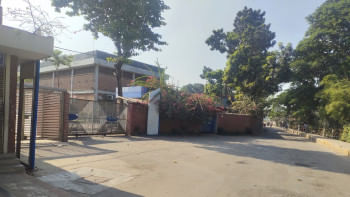A look at communalism and fundamentalism in society

Communalism and Fundamentalism in Bengali Society and Literature"- (Bangali Somaj O Sahitye Samprodayikota ebong Moulobad)- by Dr. Nooh-ul Alam Lenin,
The author, a Member of the Presidium, the Bangladesh Awami League, has been involved with research and publication pertaining to the War of Liberation and the evolution of culture and civilization in deltaic Bengal for some time. He has been involved in this regard in the establishment of the Bikrampur Museum, the Liberation War Museum and the "Gyanpith' Research Center. He was also part of the team that drafted this political party's election manifesto before the elections in 2001, 2008 and 2014.
This book emerged from the original research he had to carry out while completing his Ph.D thesis at the Jahangirnagar University. In his own words, it was done in the 'afternoon' of his life, nearly four decades after having left his regular formal education career. This has made the book that much more special.
He points out quite correctly that communalism and fundamentalism have always been two important facets of social history and have in their own way influenced the evolution of culture and civilization. He also acknowledges that their role, at different times, have affected the understanding of rituals and also impacted on social dynamics. This in turn has resulted in conflict, disputes and even war when different sides have tried to gain prominence over their rivals in matters of statecraft or governance.
It is against this backdrop that the author has suggested that it is important that we try to identify how communalism and fundamentalism left their mark within the paradigm of historical evolution of literature, culture and metaphysical thought in Bengal.
In this context the author points out the need to efface the twin curses of communalism and fundamentalism from the Bengali ethos. Measures required to efface these evil abominations are particularly required at this point of time-given the unfortunate rise, once again, of sectarianism and the challenges that this is creating for our desired secular way of life.
The book has been divided into six sections and also has a concluding chapter.
The first and the second sections have an analysis of the emergence and the evolution of communalism and fundamentalism within the religious landscape of Bengal. The third section evaluates how the presence of these two elements influenced Bengali literature, literary pursuit in ancient Bengal and also during the medieval period. The fourth section reviews the dynamics of communalism and fundamentalism as they impacted on Bengali literature between 1801 and 1947. Within this matrix, he also points out the debatable and contentious role played by the colonial British administration in trying to divide the different sections of the community through their uneven and controversial support for different religious groups.
The fifth section dispassionately examines the role these two factors played in determining the evolution of thought processes in Bengal between 1947 and 2000. The sixth section reviews the gradual growth of secularism due to the War of Liberation and its role in creating a less communal and fundamentalist society within the Bengali parameter in independent Bangladesh. In the concluding section, the author expresses his hope that a careful and holistic study is required by the readers to understand the significant role that can be played by a secular society in the transformation of Bangladesh and in successfully meeting the needs of its citizens. This would encourage respect for the belief of others and also reduce the possibilities that arise from clash of culture.
This work needs to be read carefully, particularly the areas that detail the influence of communalism on distinguished litterateurs in the Nineteenth and Twentieth centuries in India in general and particularly in Bengal.
If possible, the Bangla Academy should take the step of translating it to English for a wider audience.
The reviewer is former Ambassador, Distinguished Fellow, Bangla Academy, Dhaka.


 For all latest news, follow The Daily Star's Google News channel.
For all latest news, follow The Daily Star's Google News channel. 



Comments